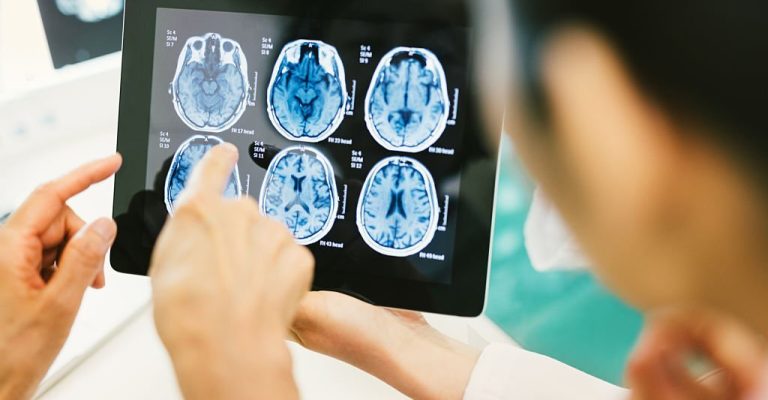
Hypothalamic damage can devastate your health, from altered hormones and metabolism to personality changes. Diagnosis can be challenging due to its tricky symptoms, but understanding what causes it and what treatments are available can help you recognize the signs early on and seek help immediately. In this blog post, we’ll discuss all aspects of hypothalamus brain injury—from identifying the cause to finding potential treatment options—so that if you find yourself facing this unfortunate outcome.
Hypothalamic brain injury refers to damage or trauma to the hypothalamus, a small but critical region located at the base of the brain. The hypothalamus plays a vital role in regulating various essential bodily functions, such as body temperature, hunger and thirst, sleep-wake cycles, hormone production, and emotional responses. Injuries to this area can result from head trauma, strokes, tumors, infections, or other neurological conditions.
Depending on the extent of the damage and the specific areas affected, hypothalamic-brain injuries can lead to a range of symptoms and complications, including hormonal imbalances, disruptions in sleep and appetite, body temperature regulation issues, mood changes, and disturbances in other physiological functions.

The hypothalamus is crucial in maintaining the body’s temperature within a narrow range, known as thermoregulation. It receives information from temperature receptors throughout the body and initiates responses like sweating or shivering to keep the body at an optimal temperature.
As part of the limbic system, the hypothalamus controls feelings of hunger and thirst. It monitors the body’s energy and fluid levels and triggers the sensation of hunger when energy reserves are low and thirst when the body needs hydration.
The hypothalamus is a significant player in the endocrine system. It produces and releases various hormones that control the pituitary gland’s activity. These hypothalamic hormones, such as corticotropin-releasing hormone (CRH) and gonadotropin-releasing hormone (GnRH), influence the secretion of hormones responsible for growth, reproduction, stress response, and more.
Through its interaction with other brain regions like the pineal gland and suprachiasmatic nucleus, the hypothalamus helps regulate the sleep-wake cycle or circadian rhythm. It promotes wakefulness during the day and triggers sleepiness at night.
The hypothalamus is connected to the limbic system, which controls emotions, motivation, and basic behavioral responses. It plays a role in fear, pleasure, aggression, and other emotional states.
The hypothalamus regulates the autonomic nervous system, influencing involuntary bodily functions like heart rate, blood pressure, digestion, and respiratory rate.
In conjunction with the pituitary gland, the hypothalamus regulates reproductive functions, including releasing sex hormones and controlling the menstrual cycle in females. It also contributes to sexual behavior and libido.
The hypothalamus is essential in the body’s stress response, releasing stress hormones like cortisol and adrenaline to cope with challenging situations.
These functions highlight the hypothalamus’s critical role in maintaining homeostasis and coordinating various bodily functions to ensure overall well-being. Any damage or dysfunction in the hypothalamus can lead to a wide range of health issues and imbalances in the body’s internal environment.
One of the most common risk factors for hypothalamus damage is head trauma, such as accidents, falls, or sports-related injuries. Severe blows to the head can directly damage the hypothalamus or its blood supply, leading to functional impairments.
Hypothalamic damage can occur due to strokes, either ischemic (caused by a blood clot) or hemorrhagic (caused by a burst blood vessel). When blood flow to the hypothalamus is interrupted, it can damage tissue and disrupt its vital functions.
Brain tumors or lesions near the hypothalamus pose a risk for damage. These growths can press on the hypothalamus, causing structural damage or interfering with normal function.
Certain infections, such as encephalitis (brain inflammation) or autoimmune disorders affecting the brain, can lead to hypothalamic damage. Inflammatory processes can cause tissue damage and disrupt neural connections.
Patients receiving radiation therapy for brain tumors or other conditions in the brain region may be at risk of hypothalamic damage as a potential side effect.
In rare cases, individuals with genetic disorders affecting brain development or function may be prone to hypothalamus damage, leading to various health issues. Birth anomalies, genetic illnesses including Prader-Willi and Kallmann syndrome, and alcoholism have all been linked to hypothalamic injury. Regardless matter what initially caused the damage to the hypothalamus, similar symptoms will present themselves.
Vascular abnormalities, such as arteriovenous malformations (AVMs), can alter blood flow in the brain and potentially damage the hypothalamus.
In some instances, surgical procedures involving the pituitary gland, which is closely connected to the hypothalamus, may risk accidental damage to the nearby hypothalamic structures. Injuries to the hypothalamus are common, especially at the front of the brain where the hypothalamus is located—traumatic brain injuries, such as concussions, commonly cause cognitive impairment. According to research, 60% of TBI cases are associated with hypothalamic and pituitary gland dysfunction. However, hypothalamic injury may be caused by other medical issues as well.
One of the reliable measures to detect hypothalamic dysfunction resulting from brain injury is assessing heart rate variability (HRV). To accurately examine HRV, physicians recommend using a Holter monitor for 24 hours. In this test, electrodes are placed on the patient’s chest to enable them to perform their daily activities without hindrance while recording heart function.
Heart Rate Variability (HRV) assesses the extent of fluctuations in your heart rate, which are critical indicators of the endocrine system’s health and capacity to maintain bodily equilibrium. The absence of any or minimal changes in the HRV could imply a possible dysfunction in the hypothalamus – a key regulator of various physiological functions.
In cases where the heart rate remains consistently high or low, it could signify an inadequate communication network between the sympathetic and parasympathetic responses, both of which are subsidiary to the hypothalamus’s command. A compromised hypothalamus could impede communication between these responses, leading to a distorted heart rate reading.
Hypothalamus injury may also be diagnosed using tests like:
If your healthcare provider determines that you have sustained an injury to your hypothalamus, they can begin hormone therapy to compensate for any shortages.

Treatment for hypothalamus damage depends on the specific cause and extent of the injury. As the hypothalamus plays a critical role in regulating various bodily functions, addressing its damage requires a comprehensive approach. While complete recovery may not always be possible, the following treatment strategies can be employed:
Treatment for hypothalamic damage primarily focuses on managing the specific symptoms and complications arising from the injury. This may involve addressing issues such as hormone imbalances, disruptions in body temperature regulation, sleep disturbances, appetite changes, and emotional problems. Medications, lifestyle modifications, and therapies may alleviate these symptoms and enhance the individual’s overall well-being.
If the hypothalamus damage leads to hormone deficiencies, hormone replacement therapy may be prescribed. HRT can help restore hormonal balance, manage endocrine-related symptoms, and improve the individual’s overall hormonal health.
Physical therapy can be beneficial for those experiencing motor deficits or weakness due to hypothalamic damage. It aims to improve motor function, mobility, and muscle strength. Occupational therapy focuses on helping individuals adapt to daily life challenges and regain independence in performing essential tasks.
Cognitive rehabilitation and behavioral therapies may address cognitive changes and emotional challenges resulting from hypothalamic damage. These interventions improve cognitive function, coping strategies, and emotional regulation.
Individuals with hypothalamic damage may experience chronic pain as a result of the injury or associated conditions. Pain management techniques and medications can alleviate discomfort and improve the individual’s quality of life.
Providing a supportive environment and making appropriate lifestyle modifications can significantly impact the well-being of individuals with hypothalamic damage. This includes a balanced diet, regular exercise, stress management techniques, and a conducive living space to enhance the person’s comfort and functioning.
Regular medical check-ups and monitoring are essential to assess progress, manage treatment effectiveness, and address any emerging complications promptly. Regular follow-ups with medical specialists will ensure the treatment plan remains relevant and effective for the individual’s evolving needs.
Injuries to the brain, tumors, and autoimmune illnesses are all potential causes of hypothalamic dysfunction. Damage to the hypothalamus, which plays a significant part in various biological processes, may have devastating effects. Hormone treatment, fortunately, may enhance and restore a variety of these capabilities. If therapy is started quickly enough, hypothalamic damage may be reversed.